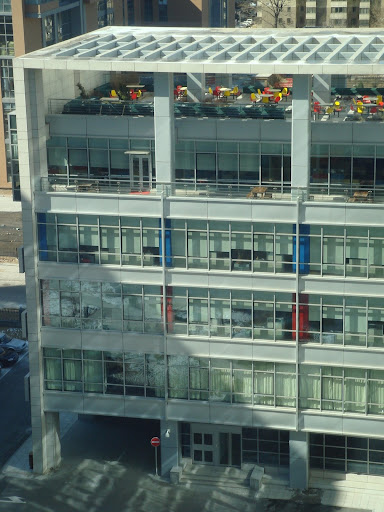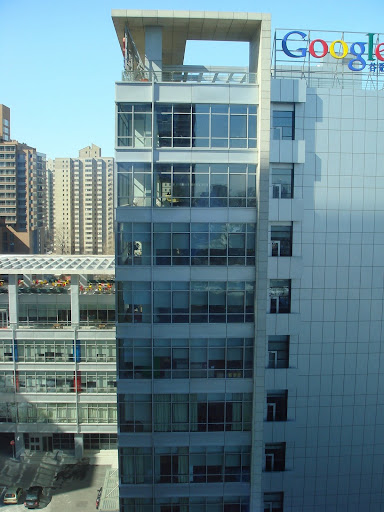Rebbecca sent me the written interview question about my blog, and here are my answers.
1. When did you start to open this blog?
Sept 11, 2002.
2. What have initially triggered you to be a blogger?
I setup my personal website (wangjianshuo.com) in 2000, and I wrote articles about Shanghai, like Shanghai Airport or Shanghai Taxi in English at that time, and attracted many visitors. Later, I started to organize the articles according to the created date. This is very like a blog. In July 2002, someone “interviewed” me on MSN, and it turned out he is a blogger. Then I am aware of the existence of the concept “blog” and thought it is the perfect way (or tool) for me. So I started my blog at a subdomain: https://home.wangjianshuo.com. The “home” part indicates that the server – a normal personal computer connected to Internet – is physically located in my home.
3. How much does this blog mean to you?
Blog means half an hour of reflection for me. To express someone’s thought completely and beautifully is maybe the biggest mental challenge people face. To create something useful everyday forced me to keep observing and keep thinking about my life, my city and my world. To me, it is more like a thinking tool, than a blog.
4. What goals do you want to achieve in your blog?
My goal is to make the life for foreign visitors to Shanghai easier. Shanghai is a modern city, but it is far less visitor-friendly as it should be. I know how hard people’s life is when they just moved into the city, especially when they came from another culture and don’t speak the language. Once I wrote about the emergency number in Shanghai is 119 instead of 911. From the comment, I realized many people don’t know that! My work is to help Shanghai to be friendlier to visitors and expats.
5. We’ve heard that for more than 4 years in a row, you’ve been writing at least one entry every day. Have you encountered any difficulties of doing so? What if you were not in the mood for writing anything or what if you felt that you’ve got nothing to say?
In Sept this year, I have completed 5 years of blogging. I have formed a habit to think about what I am going to write when I walk out of my home in the morning, so most of the time I have something to write. There must be something interesting to write about during the day time if you observe carefully enough – what a poor life someone is leading if he cannot find anything interesting even if he tries hard to find one. There are also some days that I feel there is nothing to write, I will turn to my readers. I have more than enough unanswered questions in my email box or in my comment forum, and I will find a topic to write. I also have some backup topic list I have in my mind but I didn’t write about so I can pick one if I am running out of topic. If there is really nothing to write or I am completely not in the mood to write, I just post a notice called “out of blogging”, and tell readers, I don’t want to write today. There are less than 10 times during the 5 years.
6. As CEO of KIJIJI, you must be very busy at work. How can you manage to be both an excellent IT professional and a successful blogger at the same time? (for instance, how do you manage your time?)
It is all about what you value. Time is not an issue if you have a goal. Everyone is busy. It is all about the decision you make about what is important to your life. I made a decision that to record my life, and provide a public service to visitors is an important thing in my life, so I stick to it. I started the blog 5 years ago, when I was not a CEO. At that time, people asked me: “Why spend half an hour everyday? What did you get from it?” My answer was: “I am accumulating something important and I am helping people. What did you get by busy working 8 hours a day, and 5 days a week?” To find a goal is more important to do the work. I hope after 10 years, when I look back, I am not only busy, but also accumulating something important. That is the reason I spend time on blog.
7. Does being a blogger help your career? From what perspective has it helped or affected your work?
It helps in many ways. First is about thinking. As I said, it is a tool to help me thinking and help me to keep the right direction. It is not easy to be conscious about the meaning of someone’s life without consistent meditation (blogging is like meditation) and reflection. Secondly, it helped me to create personal reputation. A blog is all about a person. I have built trust with my readers, and people can trust me by reading my thoughts in the last 5 years. It is an honest record of my life. This helps my career greatly. When I meet with people, some times they say: “It seems we have been friends for years, since I read your blog for years”. I didn’t affect my work. If my work is affected, that means I am still not mature enough or skillful enough to handle two projects together. To make it really work, I intentional separate the professional world and blogging world. In the professional work, I am a CEO and an evangelist of new tech and Internet. In blogging world, I am just a resident of Shanghai who is willing to help.
8. How would you describe your own role in the city?
I am a resident of this city. I didn’t grow up here, and only moved here 12 years ago, when I was 18 years old. Shanghai gave me a lot – friends, career, wealth, and happiness. I am grateful to this city. My role in this city is just a normal resident, as the other 16 million people. There is a special role I take. I happen to be standing at the entrance of Shanghai in cyber world. With the popularity of search engine, when people search something with the keyword “Shanghai”, it is pretty likely that the first result in search engine is my blog. I feel I am obligated to help visitors to the city since not many people are doing that. I don’t think I help “promote” Shanghai. I just describe it as it is. There are good things and bad things about Shanghai. I just want to make people’s experience a little better because of my work.
9. How would you briefly characterize Shanghai, its people, and the most important changes you have witnessed?
Let me try to use several keywords. 1) Opportunities. Shanghai is a place full of opportunities. It offers a leveled playground for people to compete on. I witnessed so many stories where someone came in with nothing and become very successful after few years of hard work. 2) Energetic. The city is full of energy. Look at the restaurants, elevated roads, deep water ports, airports, and even KTVs! Shanghai is a city without sleep. 3) Pressure and anxiousness. Because of the fast changing pace, and the strong competition, people in this city are much more worried and anxious than its peer cities. To get back to his/her hometown and relax seems to be a popular fancy dream for many people who came to this city.
10. Of the things that have disappeared, what do you miss most?
I didn’t see too much things “disappearing”. Shanghai is a mix and people keep adding new things while preserving old things. This is good. There are some historically building being tore down to give room to new buildings, that is bad.
11. Of those that remain, what do you most hope to see preserved?
Shanghai should be a city with history. We should not only preserve buildings, but also preserve the stories in those buildings and preserve the culture. There are some nice villas in the downtown, and I believe it is a great treasure of the city. To keep it as it is may not be the good approach since they are lack of maintenance. We should restore the glory of the buildings, and make it a much better place. Do allow people (including poor people) to live in downtown, so the smell of life (I mean child playing in the lane houses) is still with the city.
12. Of those on the horizon, what are you most looking forward to?
I am looking forward to the improvement of the “software” of the city. Shanghai is comparable with most metropolitans in terms buildings and landscape. However, when we talk about education, healthcare, environment protection, science, art, culture, the gap is still huge. I want a better city, where people enjoy living in the city and feel safe and comfortable to live in it.
13. What do you see Kijiji’d development in Shanghai? How much has Kijiji affected people’s life?
Kijiji.cn’s is a free, local, personal, and easy to use classified service, and its mission is to change people’s life by matching their needs. We see tremendous opportunity in this city. There are people looking for jobs and there are people offering jobs. There are house seekers, and lenders. There are many people going to the same place to work from the same location, so they cal do car pool. By connecting the right people, we are changed their life. The team is inspired by these opportunities and always wants to make big impact to people’s life. Kijiji grew fast in the last two years. We enjoy 1,000% annual growth in the last two years.
14. Any further points you’d like to make about your work, your life and yourself?
I am a blogger, and I record the life of Shanghai today. I hope there are people who want to read my blogs I write today after 10 years, so they will say: “Look! Shanghai changed so much!”




